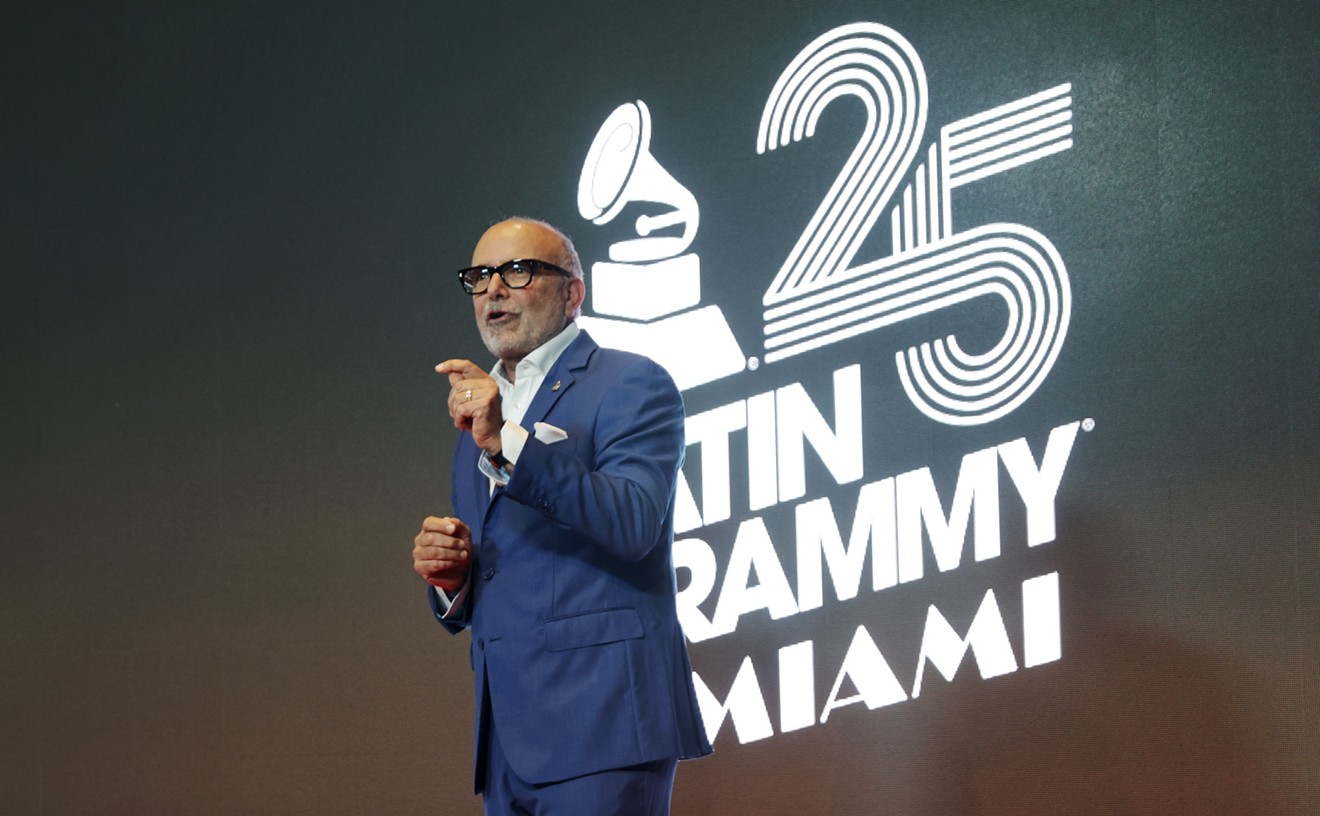"I always had a passion to make music," says Duke Dumont. "I knew if it was a hobby, I'd do it. And if it was a full-time job, I would always be doing it."
Now 32 years old, this British DJ-producer (born Adam George Dyment) has achieved so much more than that modest dream of a simple, 40-hour-a-week musical career.
In fact -- though it's been a long, hard haul -- he's managed to climb out of obscurity to become one of today's fastest-rising stars on the house and techno scene.
See also: Win Free Passes for III Points Festival
Reaching a professional pinnacle over the past couple of years, Dumont scored a number-one hit in both the U.K. and U.S. with 2013's "Need U (100%)" before ultimately earning a nomination for Best Dance Recording at the 2014 Grammy Awards. It was all proof that the fans, the industry types, and even the critics love him. But that kind of success and acclaim didn't always seem possible.
"I'm just happy that people are talking about me, to be honest," he says. "For many years, no one was talking about the music I did."
These recent triumphs, from "Need U" to subsequent chart-toppers "The Giver" and "I Got U," are the results of decades' worth of hard work, experimentation, and making do with whatever music-production tools he could get his hands on.
"When I started, I didn't have the money to pay for anything," Dumont recalls. "Yes, I'm Grammy-nominated now. But I didn't have a penny to my name when I was 16. I couldn't afford any software. If anyone can take inspiration from me, it's in that."
Of course, he did eventually get some help. In 2007, the then-25-year-old was signed to U.K. label Dubsided, where he got the chance to work closely with fellow Brit dance artist Switch, who was hitting a creative peak that year, masterminding tracks for M.I.A.'s Kala, which Dumont still sees as some of the producer's best work. Over the course of a single weekend, the soon-to-be cofounder of Major Lazer helped young Duke put the finishing touches on an upcoming EP. It was a perspective-altering, career-changing experience.
"In those two days, I probably learned more than I ever did going to sound college or anything else," he says. "And the most important thing I learned from working with Switch was just how creative you can be using a laptop. Before that, I used to think you needed to use hundreds of thousands of dollars of equipment to get particular results, and he just really showed me how you can get the most out of something, that you don't have to have a high-end studio."
See also: EDM's Five Greatest Delusions
Fast-forward seven years, and even after his number-ones and the Grammy nod, Duke remains committed to being a student of dance music. It's only that, as he explains, the classroom is a lot bigger now.
"I've learned so much from DJ'ing around the world and DJ'ing for so many years," he says. "I think it keeps me slightly ahead of the game of what's going to happen with popular culture."
But even though he seems to understand the thrust of impending pop trends -- and his big hits have made him a damned-near household name, if your house revolves around dance music -- Dumont still feels a need to stay true to the dynamic, underground style that got him here. He is certainly seeking continued success and lasting acclaim. However, he also acknowledges that he can't just pump out radio-friendly records all the time. He's got to keep working for the dance floor too.
"Essentially, I DJ for a living. So if I'm not making club music, I need to have a think whether I should be DJ'ing or not," he says. "A song that might be played on radio won't necessarily be the biggest-sounding track in one of my DJ sets. And the biggest sounds in my DJ sets might never even get played on the radio."
That's why, to satisfy the dark-room, after-hours side of his creative being, Dumont regularly puts out installments of an EP series dubbed For Club Play Only. "They're definitely not motivated by radio play and record sales," he insists. "It's kind of the opposite. It's just trying to make something quite unique."
Yet whether embracing pop or indulging in dance experimentalism, Duke is simply interested in the freedom to pursue all sonic possibilities. He just doesn't see the point in limiting oneself.
"Take a generic EDM artist who really doesn't push the envelope creatively with their music," he says. "They have a huge YouTube video that has 100 million likes, and they're making millions of people happy with their music, but it's not necessarily the most progressive.
"And then there's the artist who has 2,000 listens on SoundCloud, but they're making music that is probably 20 years ahead of everything else. They might be among the most progressive, talented musicians out there, but they probably only make 2,000 people happy.
"Who's the better artist? In my opinion, they both achieve different results," Dumont suggests. "Just because an artist is more well-known doesn't necessarily make him or her a better artist than someone being progressive. But someone being progressive isn't necessarily making a lot of people happy with their art."
The trick, for Duke, is managing to somehow exist between these two poles. "For every Club Play Only EP, which is made just to be functional club tracks, I'll try and write a hit song for the radio," he says. "I don't think that a song has to sell a million copies to be a good song. That's bullshit. But I respect people who do sell a million copies, because, at the end of the day, they have their business together."
Currently, Dumont is wrapping work on an album that he feels will balance the commercial and creative aspects of making dance music in 2014. And yes, he hopes the fans "warm up to it," as they have to the big singles. But ultimately, he is most concerned with whether "I love my music" -- simply achieving an honest, personal satisfaction in the work.
"One of the songs I'm happiest with this year was a DJ track I did called 'Drumapella,' which has, I think, 3,000 views on YouTube," Duke points out. "Then you take 'I Got U,' and I think that has 60 [million] to 80 million views on YouTube.
"I'm equally proud of them, because I think the 'Drumapella' track is definitely pushing the boundaries a bit more, but I'm proud of 'I Got U' in the sense that I can compete with some of the biggest pop stars in the world.
"I just want to continue kicking both boxes," he says, "and that's the goal."
Crossfade's Top Blogs
Duke Dumont. As part of the III Points Festival 2014. Friday, October 10. Soho Studios, 2136 NW First Ave., Miami. Doors open at 7 p.m. and three-day general admission tickets cost $88 plus fees via iiipoints.com. Call 305-600-4785 or visit sohostudiosmiami.com.
Follow Kat Bein on Twitter @KatSaysKill.
Follow Crossfade on Facebook and Twitter @Crossfade_SFL.











